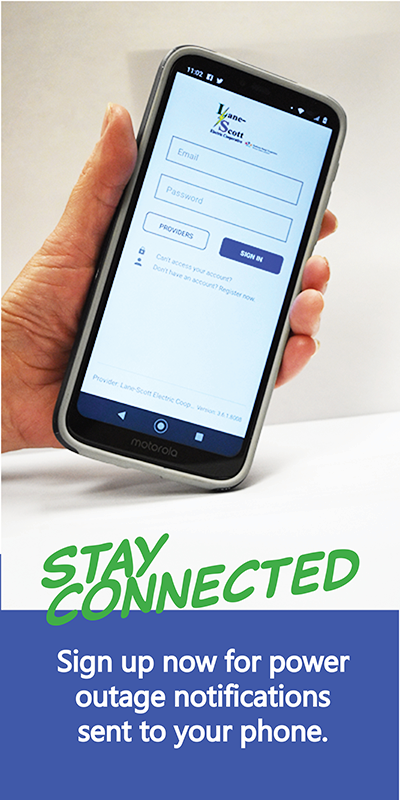
When the electricity goes out, generators are handy to have until power is restored. The can help heat your home, power your appliances or emergency medical equipment. However, before ever starting a generator, it is vital you understand how to use one safely!
Generators, when not used correctly, can prove fatal to lineworkers and neighbors. A generator connected to a home's wiring or plugged into a regular household outlet can cause back feeding along power lines and electrocute anyone who comes in contact with them... even if the line seems to be deenergized.
Linemen are not the only ones in danger when a portable generator is used improperly. Generator owners may be at risk of electrocution, fire injury, property damage, or carbon monoxide poisoning if these safety rules are not followed.
There are two types of generators for homeowners to chose from: standby and portable:
Permanent generators are installed directly to the house, typically powered by natural gas or propane. There are two types of permanent generators:
-
One has a transfer switch that must be manually "thrown" before turning on the alternate source of power. This type of a generator is permanent but not considered "standby" because of the manual switch. These should not be located near the home and should NEVER been turned on without throwing the switch first. Failure to do so can cause electricity to "back feed" back onto the line and can seriously injure or kill anyone working on them or neighbors on the same power line.
-
The other type is a standby generator, housed in a metal box usually located close to the home. These have automatic transfer switch which start automatically when the power goes out. These generators should be installed by a professional and include a transfer safety switch to prevent back feed onto power lines.
Temporary generators are usually smaller and gas powered and are portable. These are not powerful enough to energize your whole home, but are typically used for smaller appliances, furnace blowers, or RVs, emergency equipment, etc. .These should not be attached to a circuit breaker, fuse, or outlet. Before purchasing one, you need to know the wattage required to run the appliances you will attach to the generator. You also need to know the surge power, which is the power it takes to turn an appliance on.
full width paragraph

